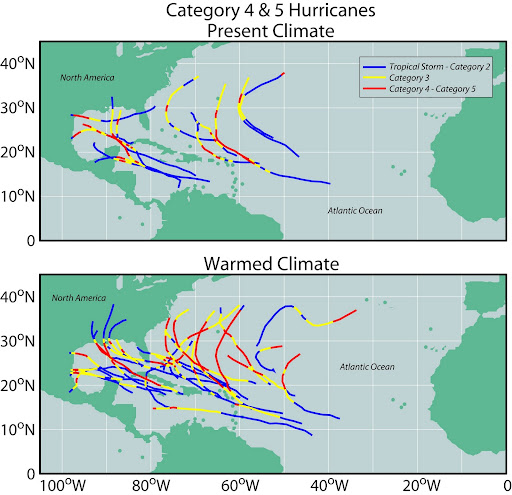Tuesday: Very warm and humid. Looking brighter, but an isolated PM shower or storm still possible. High: 91
Tuesday Night: Partly cloudy and mild. Low: 70
Wednesday: Stray PM storms possible, otherwise warmer and still humid High: Near 89
Thursday: Mostly sunny and comfortable. High: 84
Friday: Looking dry and pleasant. High: 84
Saturday: Warmer with more humidity and a few pop-up storms possible. High: 85
Sunday: Scattered showers and thunderstorms. High: 89
Monday: Front moves through, probably dry, but warm. High: 87
The Summer Sizzle
Not sure I'd want to take a cruise in the Caribbean at this time of the year, but if you're brave enough to skirt through growing and swirling clusters of thunderstorms in the warm oceans waters, you might find some mighty fine deals. An active 2010 Atlantic Hurricane season is expected, but has been fairly dull to start. Officially, we are starting the third month of a long 6 months season, which wraps up on the 30th of November. Alex, a category 2 hurricane, fizzled along Mexico's northeast shore in the Gulf of Mexico and Bonnie, only beefed up to tropical storm strength. Interestingly, this is pretty close to average. Things begin to ramp up significantly in August and September as the upper level winds in the tropics die down and the ocean waters hit their max temp. According to the National Hurricane Center, an average of 2.8 storms form in the month of August and September, the most active month, sees an average of 3 named storms. By September 24th, the average season has 4 hurricanes. Unfortunately, I fear the worst is yet to come.
Closer to home, a steamy, sticky sun will rule the roost for a couple of days, but sunny, less humid air will slide in by the end of the week. Have a good Tuesday - Todd Nelson
Calculate Your Heat Index
If you know your current temperature and relative humidity, you can use this table to approximate your current heat index.

HEAT - The #1 Non-Severe Weather Related Cause of Death
From NOAA: "The National Weather Service statistical data shows that heat causes more fatalities per year than floods, lightning, tornadoes and hurricanes combined. Based on the 10-year average from 2000 to 2009, excessive heat claims an average of 162 lives a year. By contrast, hurricanes killed 117; floods 65; tornadoes, 62; and lightning, 48.
In the disastrous heat wave of 1980, more than 1,250 people died. In the heat wave of 1995, more than 700 deaths in the Chicago area were attributed to heat. In August 2003, a record heat wave in Europe claimed an estimated 50,000 lives. Read more on HEAT from the National Weather Service:
Even though it'll be hot the next couple of days here in Minnesota and Wisconsin, the good news is that it won't be as hot as what folks are seeing just to the south. Take a look at all the heat related watches and warning to the south:
In these locations, heat indices have been consistently running above 100 degrees and as high as 125 degrees in Gulf Shores, Louisiana. This is dangerous heat, which can quick lead to heat exhaustion and heat stroke. Know the warning signs:
Atlantic Acting Up
Tropical Depression #4 developed in the Atlantic Basin on Monday as is forecast to become Tropical Storm COLIN early Tuesday morning. See the forecast track below:
The image below shows where August cyclones typically form and where they typically track:
Pakistan Flooding
The death toll in Pakistan due to some of the worst flooding decades now stands at 1,100 - read more from MSNBC here:
A bridge is washed away following flooding in the Swat region of Khyber-Pakhtunkhwa Province on Monday. The United Nations and the United States announced $10 million in emergency aid for Pakistan on Sunday. (Photo Courtesy: W. Khan / EPA)
Russian Wildfires
From Boston.com: "To date, over 1,500 homes have been destroyed and 40 lives have been lost. as wildfires continue across over 300,000 acres." Read more and see more pictures from Boston.com here:
(Photo Courtesy: NASA - Smoke seen via visible satellite over Russian nearly 23,000 miles above the Earth's surface)































